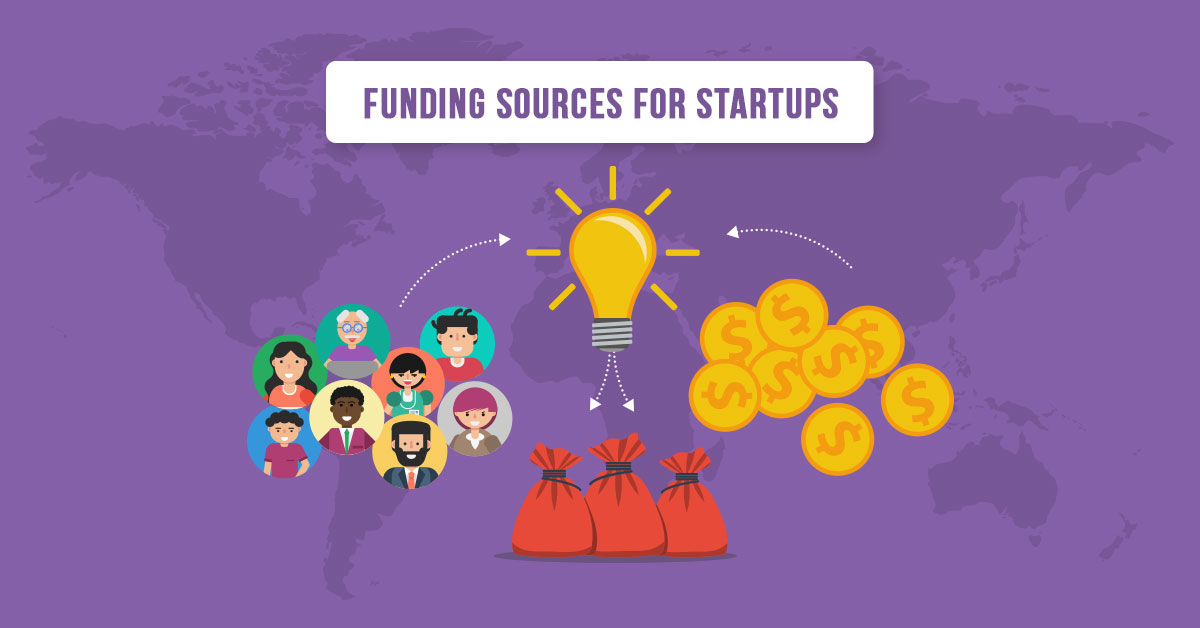Published on October 8th, 2021 | by admin
0Startup Funding: What is it and How to acquire it?

Startup funding is any type of money that helps a new business get up and running. Startup funding is the money required to establish a new business. It can come from a variety of sources and can be used for any reason that supports the startup go from idea to actual business.
Types of Funding for Setups
There are three types of funding for setups:
- Self-funding
- Investor
- Loans
Self-funding
If you have adequate personal savings, you may select to self-fund, or bootstrap, your startup. Helping your startup on your own supports you keep total control of your company (unlike with investors) and avoid rewarding attentiveness (unlike with loans). The drawback is the possibility of losing your savings if your business fails. Self-funding your business may holds personal funds and benefits, credit cards, and private loans.
Investor
Angel investor and venture money firms look to invest in startups with large growth potential. This type of startup funding does not contain monthly payments, however, it will surely need you to give up partial partnership of your company. Some investor will want to part an active role in the decision making process of your business, while other will part a more hands off approach.
Loans
Small business loan permit you to keep full control over your startup. However, you will start refunding the loan, plus interest directly. Most traditional loaner, such as banks, will impart only to build companies with strong financials. As a startup, you may have to see to other sources, such as online loaners.
What are the highest sources of startup funding?
While we often seek about suggest capital when it comes to startup funding, it back out that’s just one of the six high sources of startup money. Of the $531 billion increased in startup money each year, $185.5 billion is from private savings and credit; $60 billion is from friends and family; $22 billion is modern fund; $20 billion is angel investors; $14 billion is from inventory; and $5.1 billion is from crowd funding.
Ways to get Funding for Startup
There are some more definite types of funding for startups.
- SBA Microloan
The Small Business Administrative (SBA) Microloan program contributes helping to non-profit loaner, which in return, may convey direct loan $50,000 or less to small business. The U.S. Small Business Administration provides several loan programs, some of which serve specifically to startups. One such program is the SBA microloan, which can contribute up to $50,000 for working money, directory, supplies, furniture, fixtures, machinery or equipment. The demands for this SBA startup loan are more moderate, and business owners with poor credit (629 or lower FICO) or lower incomes can equipped.
- Personal Saving and Credit
Personal saving and credit account for the highest benefit of startup capital. Founders understand that they are going to satisfy anyone else to invest in their company, they have to be ready to go all in themselves. It’s also the most available form of funding, as you do not have to answer on anyone but yourself in order to use it.
- Microlenders
Private and nonprofit loaner also provide microloans to startups that may not qualify for an adequate business loan. These loaner tend to help minority or traditionally neglected small businesses. Microloans usually come with supportive term, and making payments on time can support you build your credit, which in back, can make it simpler to provide more financing in the future.
- Friends and family
Many startup founder convert to their friends and family to support them with initial funding. After all, those are the person that also trust in what you are doing, you do not have to satisfy them the way would a VC, angel investor, or bank. Friends and family can be a good source for gaining started, but it’s important to make sure that the business option of the relationship is definitely profiled. Get valid documentation for everything and make it clear to your desired ones that they may not get any back on their investment at all. Some business man choose to avoid such type of startup funding because of possible personal difficulties.
- Personal business loans
Personal business loans can be a hard part for those with strong personal finances. Loan quality may be smaller and terms may be shorter than standard business loans, but most are funded within a week of agreements and, depending on your credit score, can have smaller interest rates than other financing options. Just be satisfy that your loaner has no limitation against using a personal loan for business purposes.
- Angel investor
Angel investors are personal investors who invest during the seed funding stage. That’s why they are called ‘angels’ because of the risk of investing in a new company is larger than regular. Looking an angel investor for your company is fairly simple if you have the right relationships. You can find them through your personal network, seeking on social media websites and then conveying them your startup pitch, or by appearing startup events.
- Venture Capital
Venture capitalist contribute to fund only in large growth companies since there is an important amount of risk included. If the startup does not advanced, the investor won’t look a back on their investment. Most venture capitalist desire, at lowest, a seat on the board of directors of any company they are funding. However, some will desire even more partnership.
- Bootstrapping
This is one part that we directly love. Bootstrapping is ideal for anyone who is ready to start his or her own business. Bootstrapping means establishing your business by your own funds and resources, without depending on any type of external funds. It is a great way to keep complete partnership of your startup and become confident. But bootstrapping has its own squeeze. You can’t extend business with bootstrapping and if for some purpose the business goes failed, your own hard-earned money will disappear as well. For example, someone who begin a business using $100,000 of their private money is bootstrapping.














